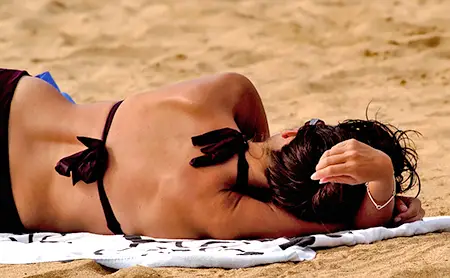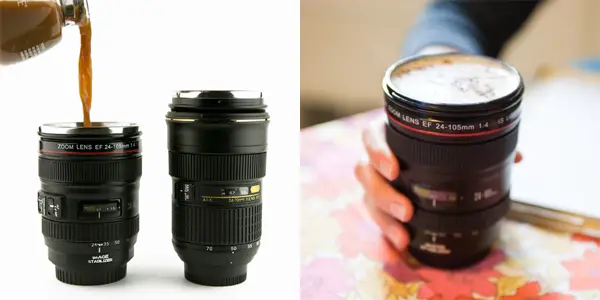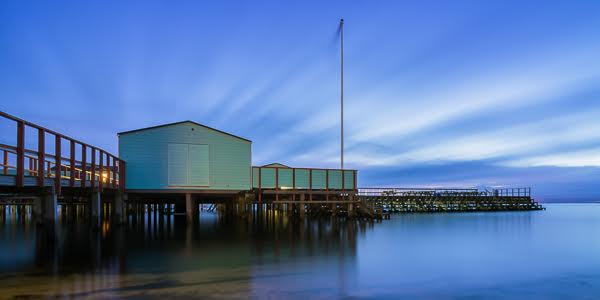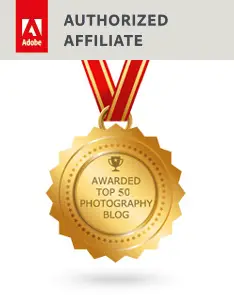Trying your hand at pinhole photography is easy and can be a lot of fun. Pinhole cameras pre-date autofocus and megapixels. They hearken back to a simpler time when a camera was literally just a box with film in the back. Photos made with pinhole cameras exude a fuzzy, low-fi charm that’s hard to resist. That said, it’s not for everyone, but I hope you’ll give it a try. If you’re anything like me, you’ll feel a little magic happening when you see that first photo. It’s sort of like stepping back in time. Have I convinced you? Do you have 30 minutes to spare? Read on to find out how to get started.
A pinhole camera is a camera with no lens. Instead, light enters through a tiny pinhole (the aperture) to expose the film or sensor. Recall the lesson on aperture: the smaller the aperture, the wider the depth of field. So if the hole is small enough, everything in the scene will be in reasonably sharp focus. Just point and click, no focusing required.
Of course, the trouble with such a small aperture is that it hardly lets any light into the camera. This means you have to use long exposures which virtually necessitates the use of a tripod on all but the brightest of outdoor shots. But a cool side-effect of that is that you can make long exposure shots even when it is bright out (hint: try shooting running water).
Pinhole scene. 6s ISO 1600. Mouse over to see the same scene shot
with a 50mm lens. The 50mm required almost 12x less exposure to
get the same shot! Also notice that the field of view of the pinhole is
slightly wider than that of the 50mm.
You can buy a pinhole camera but you’ve already got a camera right? Temporarily converting your existing SLR into a pinhole is a piece of cake. The best way to convert your SLR is to:
- Use a drill and bore a hole through the center of a spare body cap. Body caps are cheap, you can sacrifice one. The hole doesn’t need to be large. About 1/4 inch (7 millimeters) in diameter should be fine.
- Then cut a piece of aluminum foil that is big enough to cover the hole. Smooth it out.
- Now, using a sharp, thin needle, make the smallest hole possible in the foil. Don’t push the needle all the way through. Just a bit of the tip is fine. I find the best way to do this is to put the foil on a couple of sheets of paper and then just press the tip of the pin through.
- Tape the foil inside the body cap so that when you hold the whole contraption up to the light you can see a pinprick of light.
- Remove your lens and put on the body cap.
Unfortunately, if you’ve got a fixed lens point and shoot you’re probably out of luck. I’ve tried a variation of this by putting a piece of foil over the lens but ended up with a dark frame with a small image circle. Maybe you’ll have better luck than I did.
Body cap pinhole
Once your camera is converted, you’ll need to turn off autofocus and switch it to manual exposure mode. If you’ve done it right, there won’t be enough light entering the camera for the light meter to work properly (in fact, if you’re using a SLR, you may not be able to use the viewfinder at all). You’ll need to use long shutter speeds (10 to 30 seconds at your highest ISO setting indoors) so a tripod or other stable platform for the camera is a must to reduce blurring. You’ll get a feel for the correct exposure after you take and review a few shots. A refresher on shutter speed, aperture, and ISO could be useful.
It’s okay if your images are a little blurry. Homemade pinhole cameras don’t make perfect images. Part of the fun is that you never know exactly what you’re going to get. If your images are very blurry then you’ve either made the hole too big or you aren’t using a steady tripod. If the images are too dark then you need a longer exposure. And if the frame is all white you need to shorten the exposure. Finally, if you’ve got a digital SLR, a side-effect of shooting with a pinhole is that all of the dust on your sensor will show up in images very clearly.
Visit pinholeday.org to view pinhole galleries and find out how to submit your image to become part of the event.









I just happened to have written up a tutorial on how to make a pinhole body cap a couple weeks ago. Good to know April 30th is Pinhole Photography Day.
John K.,
Your link did not work, it only lead to a page with an error message… Hope you can re-post… 🙂
AM 🙂
Hmm…That’s weird AM. I just tried it and it worked for me. Must have been a server glitch or something.